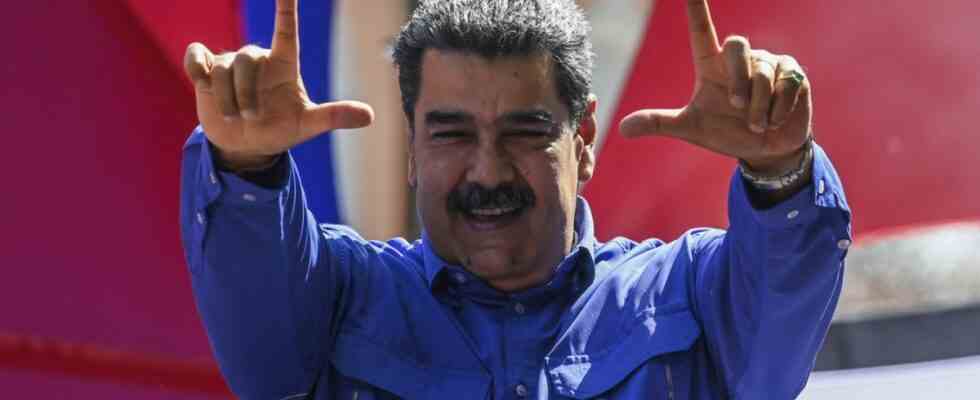There is a glimmer of hope in the talks that are to take place in Mexico City over the weekend between representatives of the Venezuelan opposition and the government of Nicolás Maduro. That’s a good sign, because for a long time it looked as if the situation in the country was irretrievably deadlocked. The fronts were considered hopelessly hardened, which is why Venezuela stumbled deeper and deeper into the crisis, economically, socially and also politically. There were talks again and again, but they also failed again and again, the last in autumn 2021.
But now everything is different. The situation in Venezuela has changed a bit, but above all the world is no longer the same as it was a year ago. The main reason for this is Moscow’s war in Ukraine: The geopolitical power structure has shifted, while at the same time the sanctions against Russia have suddenly led to a global shortage of gas and oil – raw materials of which Venezuela has more than enough.
Venezuela is an oil country
An estimated 300 billion barrels of crude oil lie beneath and in front of the land in the sea, a gigantic treasure that has long given Venezuela fabulous wealth. Until the early 1980s, the country was considered a kind of Saudi Arabia in South America, with booming cities and bubbling cruisers. But then the price of oil fell, foreign debt rose, severe economic problems, mass demonstrations and attempted coups followed.
The misery only changed again when the demand for raw materials rose again at the beginning of the noughties. Once again, Venezuela did fantastic business. But as quickly as the boom came, it went away – and from then on it was all downhill: hyperinflation, poverty, hunger. The shelves in the supermarkets were empty, the power went out constantly, and patients had to bring medical utensils and rubber gloves for the doctors, who otherwise would not have been able to operate.
Again and again there were mass protests against the socialist government. Soon they turned into street battles, demonstrators against police and army, there were dead and injured. Soon after ruler Nicolás Maduro had himself confirmed in office in controversial elections in 2018 – he was accused of electoral fraud – the young opposition leader Juan Guaido proclaimed himself interim president, supported by Europe and the USA. An open power struggle ensued. For a moment it looked as if the socialist government would falter, but it ultimately held on. In a report, the United Nations accused her of using death squads. There was talk of torture, murder and extrajudicial executions.
All of a sudden Maduro is socially acceptable again
Foreign policy President Nicolás Maduro was isolated. Ambassadors were withdrawn or expelled, the border with neighboring Colombia was closed, and the United States kept imposing new sanctions.
But then, as if by magic, the thaw suddenly set in: Shortly after Russia invaded Ukraine, a US delegation traveled to Caracas. They talked for two hours that the meeting was “respectful” and “very diplomatic”, said President Maduro afterwards. As a sign of goodwill, a few North Americans were allowed out of Venezuelan prisons, long-abandoned embassy buildings in neighboring countries were filled with life again, and at the climate conference in Egypt Nicolás Maduro even shook hands with US special envoy John Kerry and chatted briefly in the aisle with French President Emmanuel Macron. “Come visit us,” said the Venezuelan President.
The situation has changed not only in foreign policy. Venezuela’s economy is now largely dollarized, hyperinflation seems to have been overcome, poverty is still immense, but according to studies it has not increased for the first time in years. All of this seems to be reflected in domestic politics: instead of insisting on real change, parts of the Venezuelan opposition are now hoping for the next elections, which are scheduled to take place in 2024 at the latest. How they will run and under what conditions you can take part in them – that’s also what the weekend in Mexico will be about.
Nicolás Maduro has other goals at the top: money from the sale of Venezuelan oil is in frozen accounts abroad. Three billion of that could be released and flow into a fund for humanitarian aid. In the long term, however, the government also wants to see US sanctions lifted so that Venezuela can get back into the oil business.

